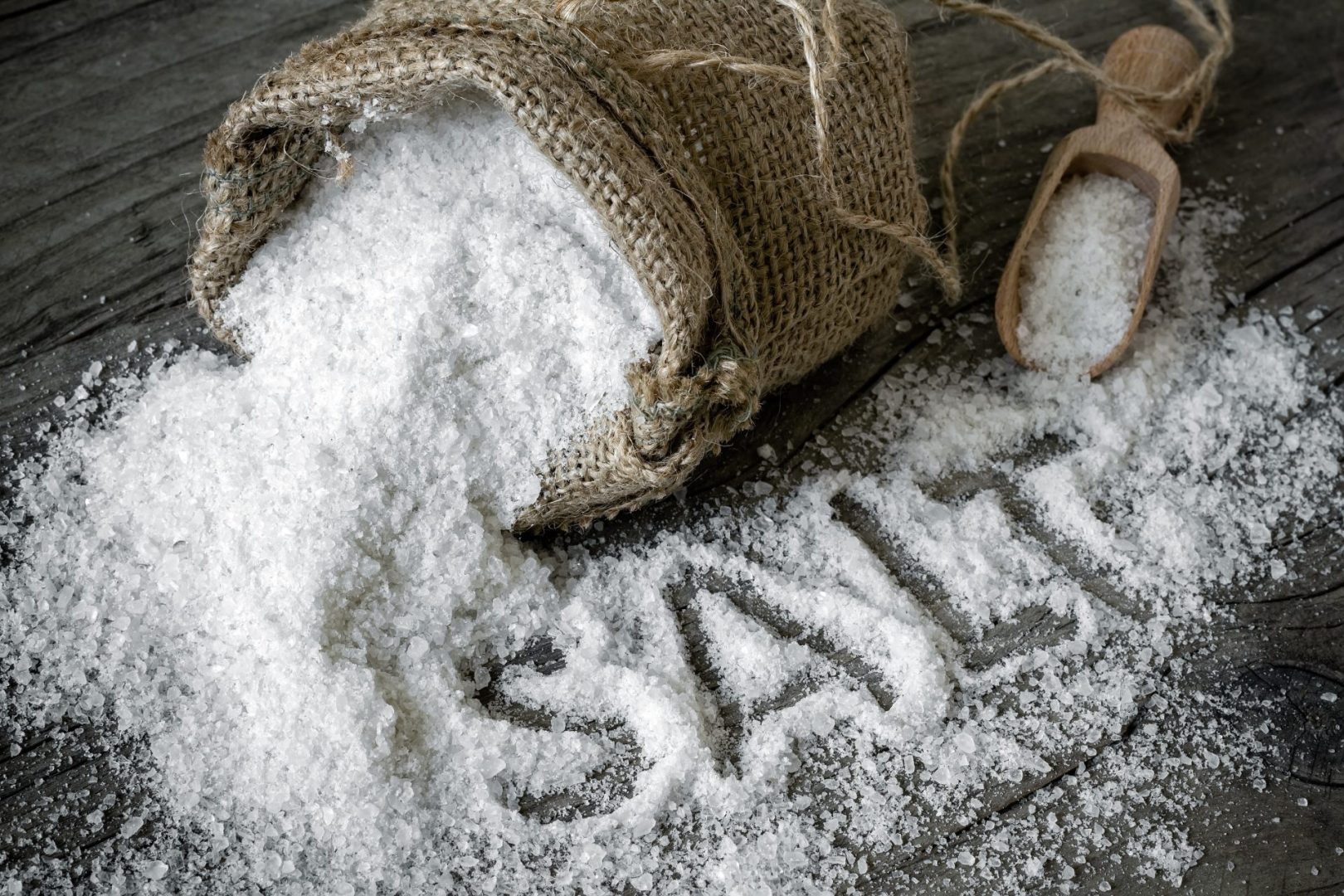You’ve been told to cut back on salt your entire life, but nobody ever explained why that advice hits some people like a freight train while others seem to sprinkle sodium on everything without consequence. If you’re African American, there’s a good chance your body treats salt like kryptonite, and understanding why could literally save your life.
The truth is, salt sensitivity isn’t just about willpower or food choices. It’s about how your genes, your ancestors’ survival strategies, and modern America’s food landscape have created a perfect storm that puts millions of people at risk for dangerously high blood pressure. When your body is wired to hold onto every grain of salt like it’s liquid gold, navigating today’s sodium-packed world becomes a high-stakes game.
Think of it this way. Your ancestors developed genetic superpowers that helped them survive in harsh environments where salt was precious and dehydration meant death. But now those same superpowers are working against you in a world where salt is cheaper than water and hidden in practically everything you eat.
Your DNA has some explaining to do
Let’s talk about why your genes might be plotting against your blood pressure. African Americans have significantly higher rates of salt sensitivity, and it’s not because of anything you did wrong. It’s because your genetic code carries instructions that were literally life-saving thousands of years ago.
In hot climates where people lost massive amounts of salt through sweating, bodies that could grab onto sodium and hold tight had a major survival advantage. Your ancestors who were efficient at conserving salt and retaining fluid were the ones who lived long enough to pass on their genes. These genetic variations were like having a built-in insurance policy against dehydration and death.
But here’s where things get tricky. The environment changed dramatically, but your genetic programming stayed the same. What once protected people now makes them more vulnerable to the health effects of our salt-saturated modern diet. It’s like having a fire alarm that’s so sensitive it goes off every time you make toast.
How salt turns your blood vessels into pressure cookers
When you’re salt sensitive, your body doesn’t just politely process sodium and move on with its day. Instead, it reacts like someone just set off fireworks in your circulatory system. Your blood vessels retain more fluid, and the pressure inside your arteries spikes more dramatically than it would in someone who isn’t salt sensitive.
This heightened response happens because salt sensitive people have differences in how their kidneys handle sodium and how their blood vessels respond to changes in fluid volume. Essentially, your body is more reactive to sodium, which means the same amount of salt that might cause a tiny blip in blood pressure for your neighbor could cause a significant and lasting spike for you.
African Americans are more likely to be salt sensitive than other populations, which helps explain why hypertension rates are so much higher in this community. It’s not about eating more salt than everyone else. It’s about having a more dramatic physiological response to the salt that’s consumed.
When your body overreacts to everything
Imagine your blood pressure system as a car’s accelerator. For most people, adding salt is like gently pressing the gas pedal. For salt sensitive individuals, it’s like flooring it. The same input creates a much more intense response, and that intensity can cause serious problems over time.
This isn’t a character flaw or a sign of weakness. It’s a normal genetic variation that just happens to be problematic in our current food environment. Your body is doing exactly what it was programmed to do, but the programming doesn’t match the world you’re living in.
The modern food trap nobody talks about
Here’s something that might blow your mind. Most of the sodium wreaking havoc on salt sensitive people doesn’t come from the salt shaker on your dinner table. It comes from processed foods, restaurant meals, and even supposedly healthy options that are loaded with hidden sodium.
The typical American diet contains way more sodium than human bodies were designed to handle, but this creates an especially dangerous situation for people with genetic predispositions to salt sensitivity. A single restaurant meal can contain enough sodium to send a salt sensitive person’s blood pressure through the roof for hours or even days.
For someone navigating salt sensitivity, the modern food environment becomes like walking through a minefield blindfolded. You might think you’re making healthy choices, but that innocent-looking sandwich or bowl of soup could be packed with enough sodium to trigger a serious blood pressure response.
The sneaky sodium hiding everywhere
We’re not just talking about obviously salty foods like chips and pretzels. Bread, cheese, processed meats, canned soups, frozen meals, and even some breakfast cereals can be sodium bombs waiting to explode in your system. For salt sensitive individuals, this hidden sodium consumption can have serious and immediate health consequences.
The problem is that food manufacturers use sodium for more than just flavor. It’s a preservative, a texture enhancer, and a way to make cheap ingredients taste better. This means sodium shows up in places you’d never expect, making it nearly impossible to avoid unless you’re reading every single food label like it’s a legal document.
When stress makes everything worse
High blood pressure in African Americans isn’t just about genetics and hidden sodium. Chronic stress from experiencing discrimination, economic challenges, and other social factors creates another layer of health risk that can make salt sensitivity even more dangerous.
Stress hormones affect how your body processes sodium and regulates blood pressure. When you’re dealing with chronic stress, your blood pressure becomes even more reactive to dietary sodium than it would be under normal circumstances. It’s like having two different systems in your body both pushing your blood pressure in the wrong direction at the same time.
The stress of dealing with healthcare systems that don’t fully understand these complex factors adds yet another layer to the problem. When people feel like their health concerns aren’t being taken seriously or addressed appropriately, it creates additional stress that can make blood pressure management even more challenging.
Healthcare gaps make everything harder
Many African Americans don’t discover they have high blood pressure or salt sensitivity until the condition has already caused significant damage. Limited access to regular healthcare, insurance issues, or past negative experiences with healthcare providers can delay diagnosis and treatment when early intervention could make all the difference.
Early detection of salt sensitivity and hypertension is crucial because these conditions often don’t cause obvious symptoms until they’ve already damaged blood vessels, heart, and kidneys. Regular monitoring and working with healthcare providers who understand the unique factors affecting African American health can dramatically improve outcomes.
Making realistic changes that actually work
Standard advice about reducing sodium intake often falls flat because it doesn’t take into account cultural food preferences, economic constraints, or practical cooking situations. Telling someone to eat less salt isn’t helpful if they don’t know how to prepare flavorful meals without it or if low sodium options aren’t available or affordable in their community.
Effective dietary changes for managing salt sensitivity need to work within people’s actual lives and food cultures. This might mean learning how to use herbs and spices to create flavor without relying on salt, finding lower sodium versions of culturally important foods, or making gradual changes that don’t require abandoning familiar meals entirely.
The goal isn’t to eliminate all sodium, which would be both impossible and unhealthy, but to reduce intake to levels that don’t trigger problematic blood pressure responses. For salt sensitive individuals, this might mean becoming a detective when it comes to reading food labels and making more meals from scratch where sodium content can be controlled.
Understanding your personal salt story
Not every African American is salt sensitive, and not everyone who is salt sensitive will have the same degree of blood pressure response to sodium. Some people might need to be very strict about sodium intake, while others might be able to manage their blood pressure with more moderate dietary changes combined with other lifestyle modifications.
Working with healthcare providers to understand your individual salt sensitivity can help you develop a more targeted approach to blood pressure management. This might involve monitoring how your blood pressure responds to different levels of sodium intake or trying elimination approaches to see how dietary changes affect your numbers.
Some people find they can manage their blood pressure effectively with moderate sodium reduction combined with increased physical activity, stress management, and other lifestyle changes. Others may need more dramatic dietary changes or medication to achieve healthy blood pressure levels, but the key is figuring out what works for your specific situation rather than trying to follow generic advice that might not fit your genetic reality.















